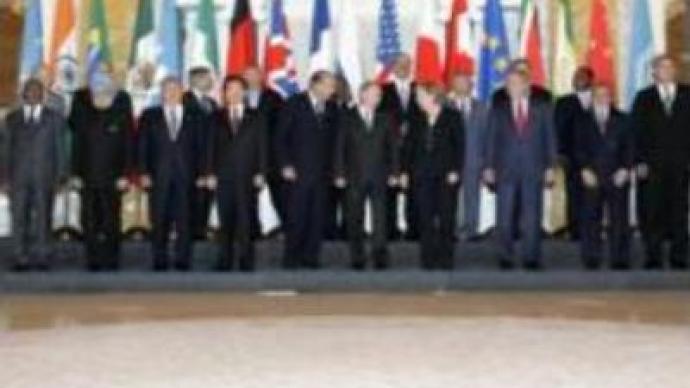From St Petersburg to Heiligendamm: year’s road for G8

In 2006, Russia hosted the G8 Summit in St. Petersburg. In many ways it was the country’s big debut. Admitted to the G8 in 1997 Russia had to wait almost a decade to chair arguably the world's most powerful club.
For three days in July, St Petersburg became the focus of power politics and media frenzy. And while the G8 leaders cruised around the Constantine Palace gardens in golf carts, more than 3,000 journalists had to catch their every breath. They say there’s a first-time for everything – Russia had a lot to prove.“I think the task was to prove to the G8 members that we were not guests at that club but full-fledged members. We did prove it. We managed to communicate every single thing we wanted to the West,” believes Andrey Kondrashov, TV journalist.No expense was spared in St Petersburg. The official $US 400 MLN price tag of the Summit was about three times higher than at Gleneagles. More than 80 G8-related events were organised throughout the year, including a Civil G8 meeting for NGOs and a Junior-8 for youngsters. Energy security, education and fighting deceases were the priorities of the Russian presidency.Still it was a bumpy ride for Russia – energy security saw blood pressures increase. With Europe keen to wean itself off its energy dependence on Russia and questioning its reliability as an exporter, Moscow wanted to show it’s on the same wavelength with its European partners.It didn’t all go according to plan. Bloody fighting in Lebanon took over the agenda. The leaders adopted a statement on the Middle East – their contribution to securing a lasting peace in the region. The Iranian nuclear enrichment programme and the status of Kosovo were also discussed. Now that the Russian Presidency is over, no breakthrough on any of the three is in sight. And the relationship between Moscow and the West has gotten worse. From St Petersburg to Heiligendamm – a different setting, a different summit, a different agenda: Angela Merkel’s priorities are shaping globalisation and helping Africa. With the brand new French President and the Japanese Prime Minister, there’ll be a couple of new faces on the leaders’ family photo. What remains unchanged is the media attention. More than 4,000 journalists from around the globe are expected, all gearing up to go out there and see what this year’s G8 Summit will bring.
You can share this story on social media:












